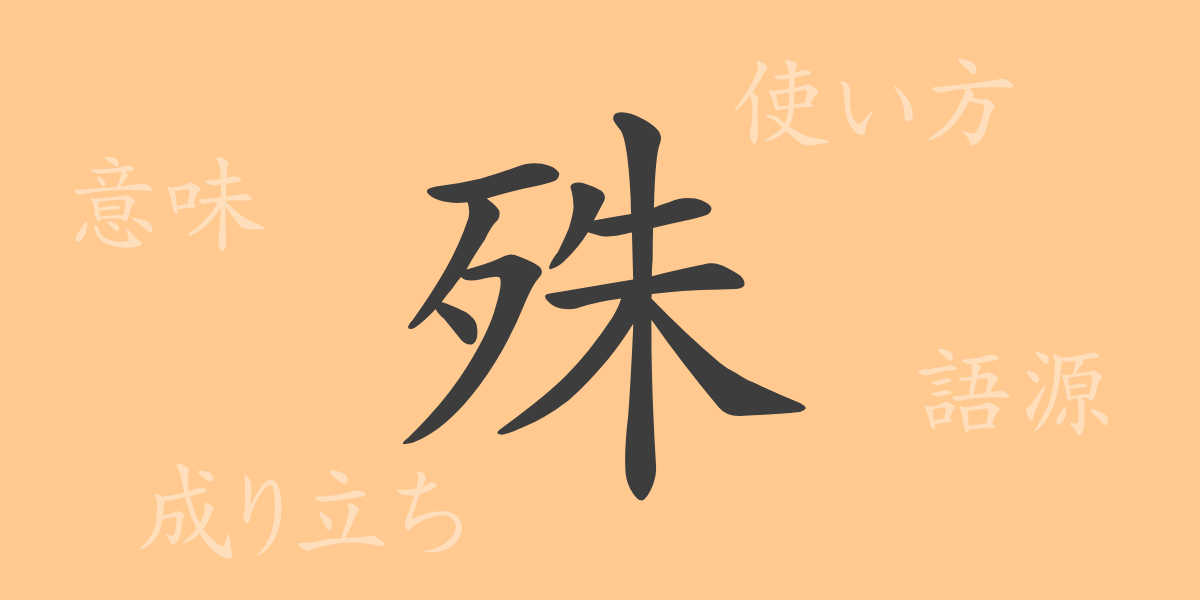Japanese culture is known for its unique beauty, especially in its delicate choice of words. One of the frequently used kanji, “殊(こと),” embodies the richness of the Japanese language with its subtle nuances. In this article, we will delve into the origins, meanings, usage, and idiomatic expressions of the kanji “殊(こと).” Join us on this journey to glimpse the depths of the Japanese language.
Origin of 殊(こと) (Etymology)
The kanji “殊(こと)” originates from ancient China, combining “歹(がつへん)” which means “death,” with “朱(しゅ),” which indicates the sound “yo.” Initially, “殊(こと)” had a strong association with “death,” but over time, it evolved to mean “special” or “different.” This evolution reflects how language grows and adapts with cultural and societal changes.
Meanings and Usage of 殊(こと)
In modern Japanese, “殊(こと)” means “special,” “different,” or “particularly.” Depending on the context, it can also mean “very.” As an adverb in the form “殊に(ことに),” it is used to emphasize something, making it a useful expression for highlighting particular points.
Readings, Stroke Count, and Radical of 殊(こと)
The kanji “殊(こと)” has multiple readings in Japanese:
- Readings: The on’yomi (音読み) is “シュ,” and the kun’yomi (訓読み) is “こと.”
- Stroke count: “殊(こと)” consists of 10 strokes.
- Radical: The radical is 歹(がつへん).
Idioms, Phrases, and Proverbs Using 殊(こと)
Expressions containing “殊(こと)” take advantage of its unique meaning in various contexts. Examples include:
- 殊勝(しゅしょう) – Remarkably excellent or commendable.
- 殊更(ことさら) – Deliberately or intentionally.
- 殊の外(ことのほか) – Particularly or especially.
These expressions are used in everyday conversation and literary works to emphasize specific aspects or highlight certain points.
Conclusion on 殊(こと)
The commonly used kanji “殊(こと)” showcases the depth of the Japanese language through its history and meaning. Properly using it in writing can enhance expression and convey precise nuances. Mastering idioms and phrases containing “殊(こと)” is a step toward wielding the magic of language. Understanding the unique charm of this kanji will enrich your appreciation of the Japanese language’s expressive power.

























